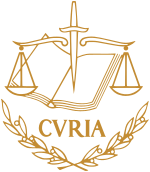Luxinnovation
European trade associationsGovernment agencies of LuxembourgInnovation organizationsLuxembourg stubsScience and technology in Luxembourg ... and 1 more
Space agencies
Luxinnovation is the Luxembourg national innovation agency. It offers services to companies and public research actors in order to foster innovation, thus supporting the Government's economic development objectives. The agency also ensures that Luxembourg continues to attract international investment, companies and skills.
Excerpt from the Wikipedia article Luxinnovation (License: CC BY-SA 3.0, Authors).Luxinnovation
Rue Alcide de Gasperi, Luxembourg Kirchberg
Geographical coordinates (GPS) Address Nearby Places Show on map
Geographical coordinates (GPS)
| Latitude | Longitude |
|---|---|
| N 49.623752777778 ° | E 6.1481138888889 ° |
Address
Parking Chambre de Commerce
Rue Alcide de Gasperi
1615 Luxembourg, Kirchberg
Luxembourg
Open on Google Maps









